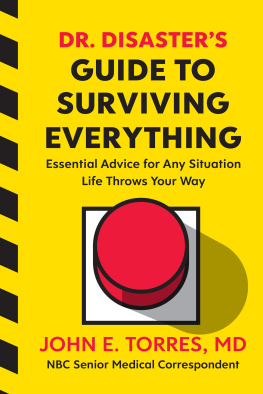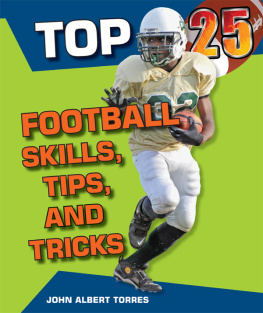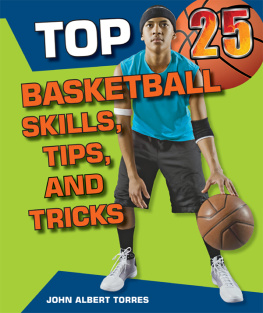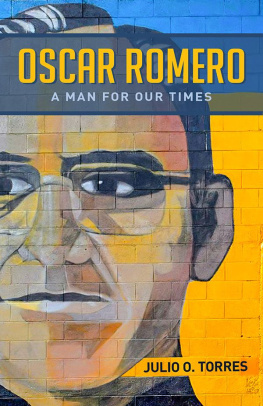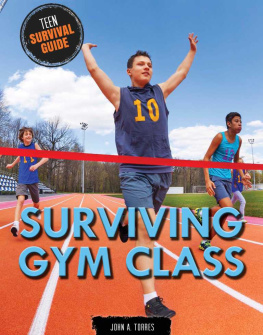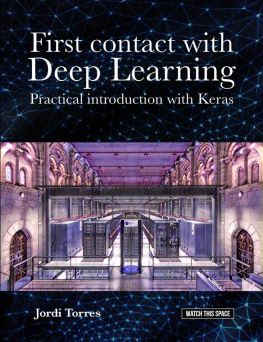John Torres - Dr. Disasters Guide to Surviving Everything
Here you can read online John Torres - Dr. Disasters Guide to Surviving Everything full text of the book (entire story) in english for free. Download pdf and epub, get meaning, cover and reviews about this ebook. year: 2021, publisher: HMH Books, genre: Home and family. Description of the work, (preface) as well as reviews are available. Best literature library LitArk.com created for fans of good reading and offers a wide selection of genres:
Romance novel
Science fiction
Adventure
Detective
Science
History
Home and family
Prose
Art
Politics
Computer
Non-fiction
Religion
Business
Children
Humor
Choose a favorite category and find really read worthwhile books. Enjoy immersion in the world of imagination, feel the emotions of the characters or learn something new for yourself, make an fascinating discovery.
- Book:Dr. Disasters Guide to Surviving Everything
- Author:
- Publisher:HMH Books
- Genre:
- Year:2021
- Rating:3 / 5
- Favourites:Add to favourites
- Your mark:
- 60
- 1
- 2
- 3
- 4
- 5
Dr. Disasters Guide to Surviving Everything: summary, description and annotation
We offer to read an annotation, description, summary or preface (depends on what the author of the book "Dr. Disasters Guide to Surviving Everything" wrote himself). If you haven't found the necessary information about the book — write in the comments, we will try to find it.
Dr. Disasters Guide to Surviving Everything — read online for free the complete book (whole text) full work
Below is the text of the book, divided by pages. System saving the place of the last page read, allows you to conveniently read the book "Dr. Disasters Guide to Surviving Everything" online for free, without having to search again every time where you left off. Put a bookmark, and you can go to the page where you finished reading at any time.
Font size:
Interval:
Bookmark:
Copyright 2021 by John E. Torres, MD
Illustrations copyright 2021 by Nathan Burton
Pokeweed illustration on Getty Images.
All rights reserved
For information about permission to reproduce selections from this book, write to or to Permissions, Houghton Mifflin Harcourt Publishing Company, 3 Park Avenue, 19th Floor, New York, New York 10016.
hmhbooks.com
Cover design by Nathan Burton
Library of Congress Cataloging-in-Publication Data is available.
ISBN 978-0-358-49480-5
eISBN 978-0-358-53975-9
v1.0321
This book presents, among other things, the research and ideas of its author. It is not intended to be a substitute for consultation with a professional health care practitioner. Consult with your healthcare practitioner before starting any diet or other medical regimen. The publisher and the author disclaim responsibility for any adverse effects resulting directly or indirectly from information contained in this book.
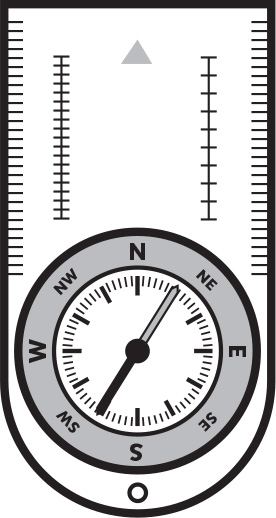
The book youre holding in your hands should never be used as a flotation device. And youd be foolish to try to use it to fend off a bear attack. But despite these few shortcomings, I am quite certain that its contents could someday save your life or the life of someone you love.
No one likes to think about disasters. But they occur every single day: Earthquakes in Italy, California, or even North Carolina. Tsunamis in Thailand, Japan, or elsewhere in the Pacific Rim. Massive flooding everywhere in the world, from the American South to northern England. Dam failures and massive mudslides in Brazil. And when the disasters are not due to our dynamic planet and the natural world, we have disaster wreaked by human hands: Active shooter incidents in American elementary schools or on a high-speed train bound for Paris. In recent years weve had two terrifying stabbing attacks on London Bridge alone. Pedestrian ramming attacks and bombings in Barcelona. Now-famous chemical attacks on innocent civilians aboard Japanese subways. Civil unrest in Belarus and in every major city in the United States.
No one wants to envision scenarios in which bad things happen to them. Indeed, part of our unconquerable human spirit practically demands that we look away and try to convince ourselves that It Cant Happen Here. But since the COVID-19 pandemic, all of us are a little closer to becoming preppersfolks planning for that inevitable day when everything goes wrong.
It doesnt really matter what part of the world you live in, or where you just happen to be visiting. Natural and human-caused disasters happen all over the world. I think it pays to understand why disasters happen, how you can keep your family safe, and what you can possibly do to survive what fate slings your way.
Folks, let me just tell you: Disaster is my frenemy.
Most people know me as NBCs senior medical correspondent. But before I was a TV news doctor, I was an emergency room physician and trauma specialist. (And still am.) Before that, I was in the National Guard. Before that, I was an Air Force pilot.
During Operation Iraqi Freedom, I was stationed in Balad, Iraq, and served as a flight surgeon. I served in rescue missions to Antarctica, treated victims of Hurricane Katrina (New Orleans, 2005) and Hurricane Rita (U.S. southeast, 2005), worked in diplomatic missions to Jordan to develop that nations emergency room system, and treated children in need on numerous humanitarian missions to Central and South America.
I still serve as an instructor for NATO Special Forces. I teach soldiers, medics, and doctors a variety of subjects. Tactical combat casualty care. Combat simulations. Medical leadership. And the big one: bioterrorism.
Some people call me a Disaster Geek. Well, guilty as charged. You could say that in all the roles Ive ever had, its been my job to obsess about what can go wrong. And boy, have I.
I first learned survival skills from my father, who took me camping and hunting as a boy in Europe and the United States. My father was an Air Force security policeman who also happened to be an amazing outdoorsman. He could track any animal and hunt it down. He could find his way out of a wilderness situation with a compass alone. He could build shelters with nothing but a knife and some cast-off vegetation.
I remember one time joining him on a hunt in the New Mexico wilderness. Each of us was trying his luck in neighboring canyons. I was striking out big time, and was about to throw in the towel when I heard a gunshot ring out. My dad had probably fired at something. But had he hit it?
It took me a while to hike out of my canyon. It was slow going, because that rough desert terrain is no joke. I was puffing as I was heading up the hill that would lead to Dads turf. Only 20 minutes had elapsed since Id heard the gunshot, but there was my dadthis five-foot-nine-inch-tall Latino man, heading in my direction down a hill, dragging after him an enormous elk whose entrails hed already cleaned out to keep the meat from spoiling. That was important because we never hunted for trophies. We hunted for food.
Only a few months into the Air Force Academy, I was on the phone telling my dad that I didnt think the Air Force was for me. I was thinking of quitting.
Do me a favor, Dad told me. You have that SERE course coming up soon, dont you? Dont quit until you take that.
SERE trainingwhich stands for Survival, Evasion, Resistance, Escapeis one of the most grueling and demanding courses military personnel can take. Your trainers leave you stranded in the wilderness with nothing but a knife, a compass, a map, and a minuscule amount of food. You pretend that youve dropped down behind enemy lines. Your job? Stay alive, and get back to your unit. Later, they try to break your will in a simulated prisoner of war (POW) camp. Your job? Dont talk, and figure out a way to escape.
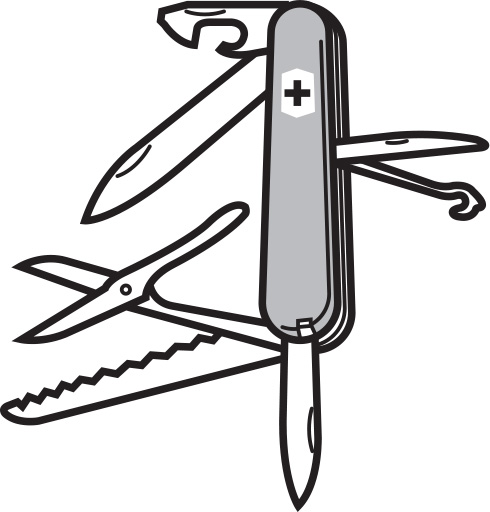
Those first few days into the wilderness scenario, you feel like youre going to die. But then you wise up. You learn that drinking muddy water isnt delicious, but will actually quench your thirst. You learn how to snack on insects for their protein content. You learn how to live off of every part of every animal you capture and butcher. When my compatriots and I got hold of a rabbit, we were ecstaticbut I was the one who got stuck gobbling up the bits no one else wanted. You dont want to know what a rabbits eyeball tastes like.
You know what? My dad was right. After SERE training, I didnt dare quit the Air Force. Those 3 weeks of grappling with potential disaster had given me a new mindset, an unquenchable attitude that has lasted to this day:
If I can do this, I can do anything.
This book is an armchair course on cultivating that mindset. Nine times out of ten, the best way to handle a disaster is to not panic and work practically to solve the problem.
But there are two other important lessons I want to impart before we get into the meat of this book.
The U.S. Air Force Pocket Survival Handbook shares two shocking cautionary tales about two different men who were stuck in the middle of nowhere. One man was stranded in the Arizona desert and made it back alive, surviving 8 days without food and water. The other was a pilot who crash-landed on a frozen lake in the Canadian wilderness and killed himself only 24 hours before a search-and-rescue team found him. Why did one man survive while the other gave up so quickly? Clearly, one had
Font size:
Interval:
Bookmark:
Similar books «Dr. Disasters Guide to Surviving Everything»
Look at similar books to Dr. Disasters Guide to Surviving Everything. We have selected literature similar in name and meaning in the hope of providing readers with more options to find new, interesting, not yet read works.
Discussion, reviews of the book Dr. Disasters Guide to Surviving Everything and just readers' own opinions. Leave your comments, write what you think about the work, its meaning or the main characters. Specify what exactly you liked and what you didn't like, and why you think so.

